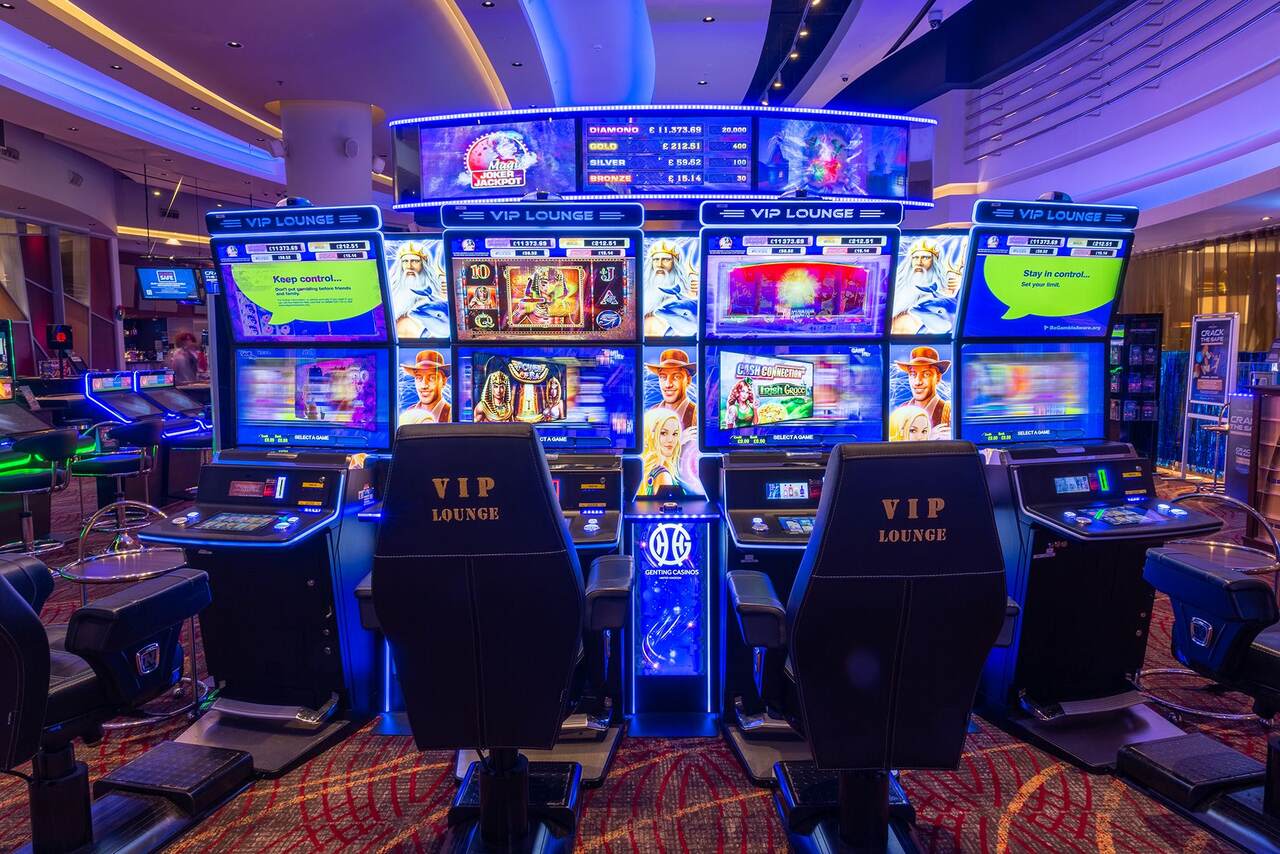Casino slot machines have captivated players for decades, drawing them into a realm of flashing lights, tempting sounds, and the excitement of luck. These devices, often found in colorful casinos, combine aspects of chance and tactics, making them an exciting option for beginners and experienced players too. But what is it that makes these games so attractive? The answer lies in the intricate psychology at play as players engage with these colorful reels.
Regardless of whether it’s the rush of anticipation while waiting for the outcome of a spin or the euphoric feeling of a big win, the psychological response elicited by casino slots is considerable. The design of these games is meticulously crafted to stimulate the brain’s pleasure system, creating an event that can be both thrilling and addictive. Understanding the psychological factors at play in playing casino slots machines can provide understanding into why so many people are drawn to them and how they affect actions and choices in the gambling environment.
Understanding the Allure of Slot Machines
Slot machines have a singular talent to engage players with their colorful graphics and alluring sounds. dagatructiep The bright lights and captivating themes create an appealing atmosphere that draws people in. Each turn of the reels offers the possibility of a significant win, fueling a sense of eagerness and expectation that keeps players coming back for more. This sensuous experience plays a key role in the appeal to casino slots games, as it stimulates not only the intellect but also the emotions.
A notable factor contributing to the allure of slot machines is the notion of immediate gratification. In contrast to other casino games that demand skill or strategy, slots offer instant results with each spin. The quick pace of the game allows for swift engagement, enabling players to experience the excitement of winning or the discouragement of losing in a matter of seconds. This instantaneous feedback loop can lead to a highly compulsive experience, as players pursue the next potential payout while being fascinated by the game’s perpetual opportunity for thrill.
Moreover, the mentality of jackpot potential cannot be overlooked. The allure of hitting a transformative payout keeps players coming back, often outweighing the odds against winning. Many players find themselves hoping about the chance of striking it rich, fueled by stories of players who have won large. This sense of hope, together with the excitement of the game, creates an compelling lure that shapes the world of casino slots and makes them a popular among bettors.

The Role of Reinforcement in Gambling
The role of reinforcement plays a critical role in the psychology of playing casino slots games. When players interact with these machines, they face various forms of reinforcement that can shape their behavior. Positive rewards is particularly impactful; obtaining a win, or even the possibility of winning, can create a rush that keeps players revisiting for more. The immediate feedback from the reels spinning, coupled with audio cues and graphics, further enhances this pleasurable experience, reinforcing the urge to continue playing.
The randomness of success in casino slots games also ties into the concept of variable reinforcement. This psychological phenomenon occurs when rewards are given out at irregular intervals, making the expectation of a potential win more thrilling. Players may go for long periods without significant wins but are drawn back by recollections of past jackpots or the possibility of future ones. This uncertainty heightens excitement and keeps players waiting for that upcoming win, embedding them deeper into the gambling cycle.
Finally, the communal element of playing casino slots games can amplify reinforcement. Many players enjoy the shared environment of a casino, where they might witness others winning, celebrate wins, or even sympathize over losses. This social reinforcement can create a shared experience that encourages repeated play. Players might feel motivated to continue not only for personal gain but also to experience the fellowship that comes with gambling, reinforcing their overall attachment to the game.
A Impact of Game Design on Player Behavior
The design of slot machines plays a vital role in shaping how players act and enhancing the gaming experience. Elements such as visuals, sound effects, and storylines are deliberately crafted to attract players and maintain them involved. Bright colors and appealing animations create a aesthetically stimulating environment that can lead to extended play times. Additionally, themes ranging from historical eras to modern trends appeal to different interests, making the games appealing to a wide audience. This focused design promotes players to invest more time and money into the gameplay.
Another significant aspect of game design is the implementation of incentive structures and elements like bonus rounds or complimentary turns. These mechanics are crafted to produce a feeling of excitement and anticipation, which can trigger the release of pleasure hormones in the brain. This neurological response reinforces the action of gambling by associating the game with enjoyable feelings. By providing attractive rewards, casinos motivate players to continue playing, which often leads to higher betting and longer gameplay. The mental thrill of possibly hitting a big win or unlocking a bonus keeps players returning for more.
Finally, the community aspects integrated into slot games can also influence player behavior. Many contemporary slots include options that allow players to interact with others through leaderboards or collective goals. This social aspect can enhance the overall experience, as players may feel a sense of belonging or rivalry that motivates them to engage more deeply. The combination of personal thrill and group dynamics creates a dynamic environment that not only amuses but also promotes habitual play, showing how deliberate game design can significantly impact player behavior.
